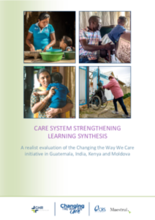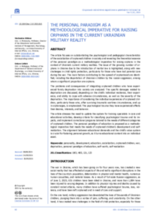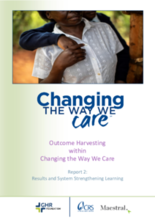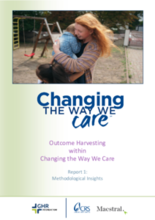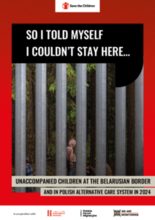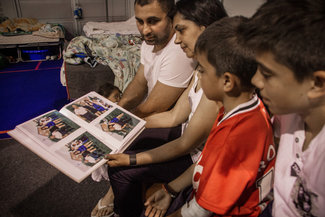

Displaying 21 - 30 of 1071
The article highlights how Moldova has dramatically reduced the number of children in institutional care from around 17,000 to just 700, with an ambitious goal of closing all orphanage‑style institutions by 2027.
This article describes how the Ukrainian government is advancing a draft law on housing policy (Draft Law No. 12377), which guarantees that orphans and children deprived of parental care will receive temporary or social housing within one month of
This report presents findings from an evaluation by Changing the Way We Care (CTWWC) that used a realist approach to examine how care reform progressed in Guatemala, India, Kenya, and Moldova across five key system components. It identifies advocacy, government ownership, collaboration, and capacity-building as major drivers of change and offers recommendations for governments and partners to embed family care in national systems, strengthen coordination and workforce capacity, and sustain reforms through evidence, shared learning, and long-term commitment.
Changing the Way We Care (CTWWC) is a global initiative which promotes safe, nurturing family care for children.
This article examines the socialization and education of orphaned children in Ukraine amid the war, highlighting the psychological trauma, deprivation, and social challenges they face. It calls for reforms in caregiver training, trauma-informed education, and the adoption of a personal paradigm approach that supports each child’s development, resilience, and self-realization.
At the close of the Changing the Way We Care (CTWWC) The Changing the Way We Care (CTWWC) initiative launched in 2018 with the aim to reform child care systems by promoting safe, nurturing family-based care over institutional ca
At the close of the Changing the Way We Care (CTWWC) The Changing the Way We Care (CTWWC) initiative launched in 2018 with the aim to reform child care systems by promoting safe, nurturing family-based care over institutional ca
The report is an attempt to capture the complex and difficult situation faced by unaccompanied children seeking international protection at the Polish-Belarusian border. It describes the legal and factual state of affairs in 2024.
This news story from CBC Canada explores how Ukrainian officials say 19,000 children have been forcibly transferred to Russia since the war began, including many with complicated health issues.
This article exposes horrific abuse and neglect uncovered at a state-run children’s home in Szolnok, Hungary, where children reportedly endured physical violence, sexual abuse, filthy living conditions, and staff indifference to their complaints.

